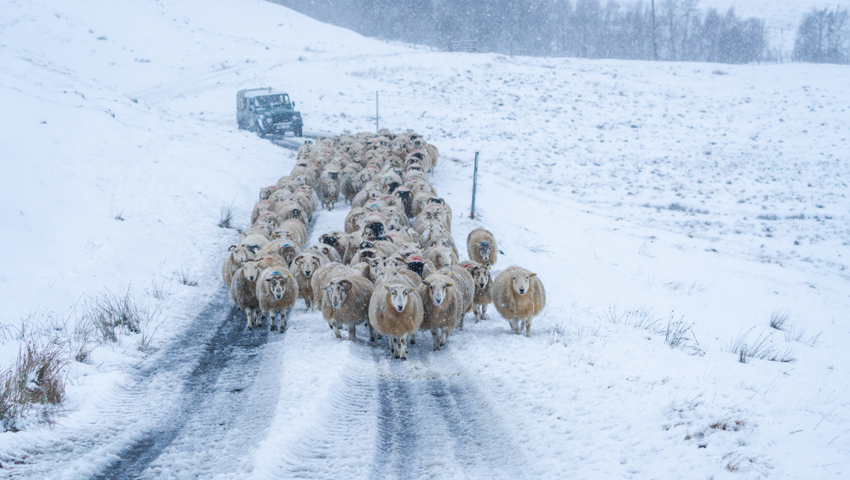Light could be shed on reasons for unexpected cases of bottle-jaw in a closed flock of sheep at a Welsh farm by utilising a new technique which identifies the presence of mud snails infected with liver fluke.
Glyn Arthur Farm, part of the Farming Connect “Our Farms” network, is farmed by father and daughter, Peter Williams and Sarah Hammond.
They run a flock of 650 ewes and 180-200 ewe lamb replacements on their 160-hectare upland farm near Llandyrnog, Denbigh.
The land is mostly dry with very few wet areas therefore the pair never expected liver fluke to present a health challenge to their flock.
But changing weather patterns mean liver fluke are now colonising areas previously considered low risk therefore when sheep at Glyn Arthur Farm presented with bottle-jaw – a fluid swelling beneath the jaw – there was concern that fluke could be to blame.
“We have never had liver fluke diagnosed at post mortem but we became suspicious when we had a sudden increase in the number of sheep with bottle-jaw,’’ said Sarah.
The farm has now embarked on project work with Farming Connect and the Department of Life Science at Aberystwyth University to establish if mud snails infected with liver fluke are present on the land, and if so, in which areas sheep are being infected with liver fluke.
Local conditions dictate risk, with wet, boggy grazing a prime candidate for liver fluke.
The farm will be surveyed by Aberystwyth University for possible mud snail habitats using an environmental DNA test developed at the University.
Dr Rhys Aled Jones, of Aberystwyth University, who leads this research, said a map detailing fluke infection risk areas on the farm would be created to help Peter and Sarah make informed livestock management decisions in consultation with their vet.
Interventions to reduce contact between livestock and fluke on pasture such as fencing and draining can be costly, therefore it is useful to be able to specify and prioritise which habitats pose the most immediate risk, especially as the threat of anthelmintic resistance grows.
The Farming Connect project work has involved vet Joe Angell blood sample screening lambs for liver fluke exposure.
He has also been advising Peter and Sarah on body condition scoring and setting body condition score targets for ewes for key points in the year.
“We have developed a comprehensive health plan for the flock and, going forward, reasons for lamb losses and ewe fertility issues will be investigated,’’ said Joe.
The role of trace elements in flock health will be looked at too and parasite controls monitored and optimised.
